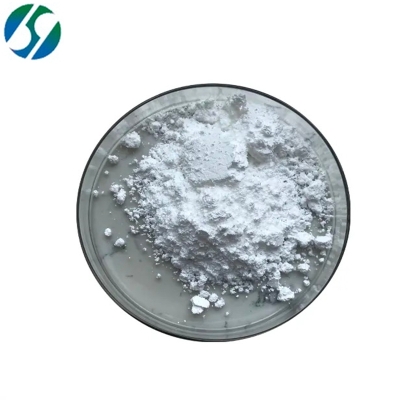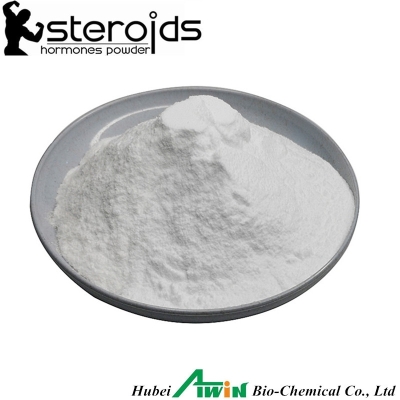-
Categories
-
Pharmaceutical Intermediates
-
Active Pharmaceutical Ingredients
-
Food Additives
- Industrial Coatings
- Agrochemicals
- Dyes and Pigments
- Surfactant
- Flavors and Fragrances
- Chemical Reagents
- Catalyst and Auxiliary
- Natural Products
- Inorganic Chemistry
-
Organic Chemistry
-
Biochemical Engineering
- Analytical Chemistry
- Cosmetic Ingredient
-
Pharmaceutical Intermediates
Promotion
ECHEMI Mall
Wholesale
Weekly Price
Exhibition
News
-
Trade Service
Abstract: The Shanghai Jiaotong University Jia Weiping's research team found that the decreased abundance of the intestinal bacteria Ekmansia muciniphila in lean type 2 diabetic patients is related to impaired insulin secretion and impaired glucose metabolism homeostasis, and clarified that Ekmansia muciniphila regulates the secretion of insulin and the expression of intestinal fibroblast growth factor 19 (FGF19) through the bile acid β chenodeoxycholic acid (βCDCA), thereby regulating glucose metabolism
.
Key words: Advanced Science, Ekmansia muciniphila, bile acid, fibroblast growth factor 19, insulin secretion, glucose metabolism, obesity is an important risk factor for type 2 diabetes, epidemiological studies show that about 70-80% Of diabetes patients are overweight or obese.
However, there are still some patients with type 2 diabetes who are thin
.
Compared with obese type 2 diabetic patients, lean type 2 diabetic patients tend to have worse pancreatic islet function
.
Previous studies have found that compared with healthy people, the intestinal flora and metabolites of people with type 2 diabetes or obesity have changes in composition and function
.
However, what is the difference in the changes in intestinal flora and metabolites between lean type 2 diabetes patients and obese type 2 diabetes patients? How its intestinal flora and metabolites affect the clinical phenotype is unclear
.
Answering the above questions may be helpful for targeted treatment of thin type 2 diabetes patients
.
The research team of Professor Weiping Jia from the Department of Endocrinology and Metabolism, the Sixth People’s Hospital Affiliated to Shanghai Jiaotong University, accurately assessed four groups of subjects (normal body weight with normal glucose tolerance, abdominal obesity with normal glucose tolerance, thin body with new-onset type 2 diabetes The clinical phenotype of patients with abdominal obesity and newly-onset type 2 diabetes patients).
Through metagenomics and metabolomics analysis, it was found that in lean type 2 diabetic patients, Ekmansia muciniphila was found in the intestine The abundance of the abundance is significantly decreased, and its abundance is negatively correlated with the bile acid βCDCA level, and is closely related to the impaired insulin secretion and the decline of FGF19 levels in this population
.
Furthermore, it was found that βCDCA can inhibit insulin secretion and FGF15/19 expression
.
In the intestines of mice with impaired islet function induced by high-sugar diet, the abundance of Ekmansia muciniphila was significantly reduced, and after supplementation with Ekmansia muciniphila, the islet function of the mice was significantly improved.
The study found that after the intervention of Ekmansia muciniphila, the level of βCDCA decreased, the expression of FGF15/19 in the intestine was up-regulated, the synthesis of liver glycogen increased and the gluconeogenesis decreased
.
This study suggests that the intervention of Ekmansia muciniphila may become a potential way to improve insulin secretion and maintain glucose homeostasis, providing a new direction for the treatment of type 2 diabetes
.
Related papers were published online in Advanced Science.
This research was led by Professor Jia Weiping, and was completed by his team, researcher Li Huating, and Professor Gianni Panagiotou from the Leibniz Institute of Natural Products Research and Infection Biology, Germany
.
Dr.
Zhang Jing, Dr.
Ni Yueqiong, Dr.
Qian Lingling and Chief Technician Fang Qichen are the co-first authors
.
The research was funded by major international cooperation projects of the National Natural Science Foundation of China, the Key R&D Program of the Ministry of Science and Technology, and the Outstanding Youth Fund of the National Natural Science Foundation of China
.
WILEY paper information: Decreased Abundance of Akkermansia muciniphila Leads to the Impairment of Insulin Secretion and Glucose Homeostasis in Lean Type 2 DiabetesJing Zhang, Yueqiong Ni, Lingling Qian, Qichen Fang, Tingting Zheng, Mingliang Zhang, Qiongmei Gao, Ying Zhang, Jiacheng Ni, Xuhong Hou, Yuqian Bao, Petia Kovatcheva-Datchary, Aimin Xu, Huating Li, Gianni Panagiotou, Weiping Jia Advanced Science DOI: 10.
1002/advs.
202100536 click "Read the original text" in the lower left corner to view the original text of the paper
.
Introduction to AdvancedScience Journal "Advanced Science" (Advanced Science) Wiley is a high-quality open source journal founded in 2014.
It publishes innovative achievements and cutting-edge progress in materials science, physical chemistry, biomedicine, engineering and other fields
.
The journal is dedicated to disseminating scientific research results to the public to the greatest extent, and all articles are freely available
.
The latest impact factor is 15.
840, and the 2020 SCI journals of the Chinese Academy of Sciences are divided into the Q1 area of the material science category and the Q1 area of the engineering technology category
.
Press and hold the QR code on the official WeChat platform of AdvancedScienceNewsWiley's scientific research information.
Follow us to share cutting-edge information|Focus on scientific research trends to publish scientific research news or apply for information sharing, please contact: ASNChina@Wiley.
com







